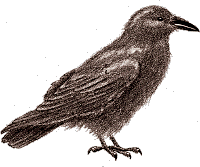
Dit is Raaf
De webpagina's van Erik Springelkamp
 |
Dit is RaafDe webpagina's van Erik Springelkamp |
Raaf
Categorieën
Archief
|
Frisians on Crusade2024-07-15 20:34Emo [29]
At this place we would like to file, for the benefit of the pilgrims, a description of the lands and the events that the crusaders for Christ bore bravely on their naval voyage to the Holy Land.
An acquaintance of Emo wrote a description of his crusade and sent it to him, and it goes as follows:
In the year 1217 after the incarnation of the Lord, in the second year of the pontificate of lord pope Honorius, on the last day of the month May, we left the beloved fields of our motherland, and we devoted the firstfruits of our pilgrimage to Him, who, when He travelled abroad, distributed his goods for them to be returned with interest later.
We arrived at the high seas trough the mouth of the river Lauwers, and then, assisted by a desirable wind, after three days we saw England.
We kept it in our sight on our right hand and reached an island that is called Wight. Although it is separated from England at high seas, it owes obedience to England.
The next day, a Saturday, we arrived at Darthmouth, where the harbour, situated between two high mountains, offered us protection.
There we met the Count of Holland and the Count of Wied [near Koblenz], who had arrived with many nobles on 212 ships.
After deciding in wise deliberation on the rules that would govern in the army, and making arrangements about salvation and peace, the Count of Wied was chosen as commander of the vanguard of the fleet, while the command of the rearguard was assigned to the Count of Holland, who was already chosen as supreme commander of the whole army.
Although on Sunday the sky was a bit disturbed because of the for sailors always a bit suspect days around new moon, the Count of Wied put to sea with favourable wind with many ships. But they ran into headwind, and were dispersed by fog and rain; one ship ran on the rocks of Brittany; the crew was saved, but the ship foundered and the cargo was lost.
We only left for Brittany the the next day with the Count of Holland, and on Wednesday reached the harbour of Saint-Mathieu, where the regulations were read for the second time, and the whole army committed to uphold the law.
The next Sunday the commands were exchanged: the Count of Holland got the command of the vanguard, the Marshal of Cologne that of the rearguard. We left the harbour of Saint-Mathieu and hoisted our sails for the North winds, who are, with their associates, a suitable companion for those who travel to Lisbon.
Under a favourable but a bit modest wind we came the next Friday in the neighbourhood of Fare [A Coruña], a rather wealthy city in Galicia that has a sheltered harbour, recognizable by a high tower that was built by Julius Caesar.
We secured the ships and the next day we took the road to Compostella, which we reached after a strenuous journey that took a day and a consecutive night. We returned from there after sacrificing to God and the holy apostle.
In Fare we were held up by headwinds for nine days. The Count of Holland, who had heard from the citizens that we could not depart from the harbour with winds that blew towards Lisbon, insisted we returned towards the direction of Brittany, about one mile, and entered the very good harbour that is called Tuy [probably not Tuy, but Ria del Ferrol], enclosed by two high mountains.
From there we departed on the festival of Peter and Paul [June 29]. After having been swayed on the waves for three days and three nights by changing winds, we arrived in Porto on the fourth day. This harbour is locked by a difficult entrance with rocks in front; some of our ships didn't enter there without grave danger, the others dropped their anchor in sight of the rocks and spent the night in fear.
|
|||||||||||||||||||||||||||||||||||
| Top |